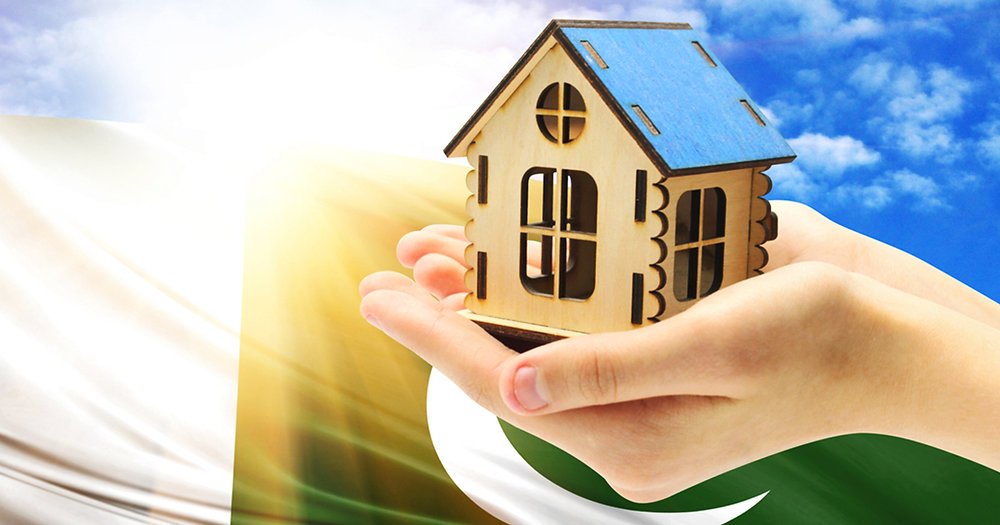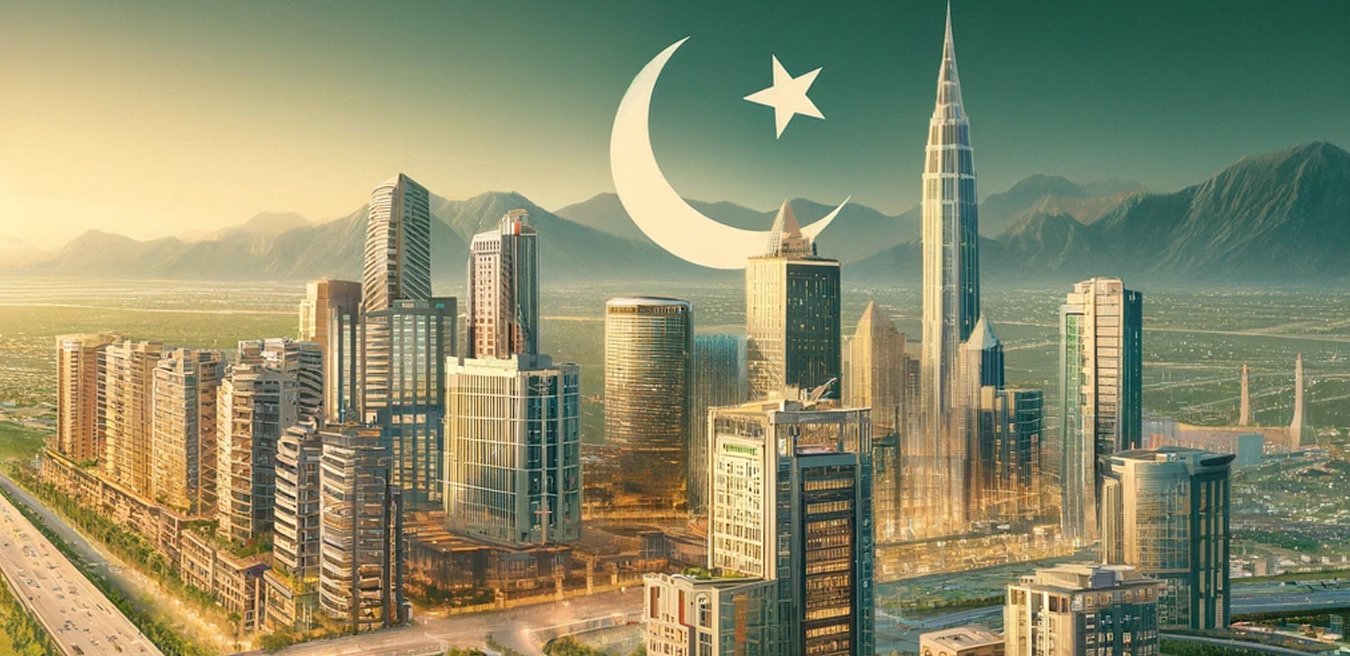Introduction
The real estate sector in Pakistan has been a cornerstone of economic activity, offering substantial investment opportunities and driving urban development. In 2024, the market continues to evolve, influenced by various economic, political, and social factors. This article delves into the intricacies of Pakistan’s real estate sector, providing a comprehensive overview of the current trends, challenges, and future prospects.
The real estate market in Pakistan is a dynamic and critical component of the nation’s economy. In 2024, the sector is poised for significant developments, driven by a blend of technological advancements, evolving consumer preferences, and government policies aimed at fostering growth. This article aims to provide an exhaustive analysis of Pakistan’s real estate landscape, exploring key trends, investment opportunities, and the challenges that lie ahead.
Economic Overview
Current Economic Climate
The economic environment in Pakistan plays a pivotal role in shaping the real estate market. As of 2024, Pakistan’s economy is witnessing moderate growth, influenced by various macroeconomic factors such as GDP growth rate, inflation, and foreign exchange reserves. A stable economic climate is essential for the health of the real estate market, as it impacts consumer confidence and purchasing power.
Impact of Inflation
Inflation remains a significant concern for investors and developers alike. Rising costs of construction materials and labor can affect the profitability of real estate projects. However, inflation can also drive up property values, making real estate an attractive hedge against inflationary pressures.
Foreign Investment in Real Estate
Foreign investment is a crucial component of the real estate sector in Pakistan. Government initiatives to attract foreign direct investment (FDI), such as offering incentives and easing regulatory procedures, have started to show positive results. Cities like Karachi, Lahore, and Islamabad are seeing increased interest from overseas investors, particularly in commercial real estate.
Government Policies
The government’s role in regulating and promoting the real estate sector cannot be overstated. Policies aimed at affordable housing, infrastructure development, and tax incentives are designed to stimulate growth. For instance, the Naya Pakistan Housing Program aims to build affordable homes for the low-income segment, boosting both supply and demand in the housing market.
Key Cities for Real Estate Investment
Karachi
Residential Market
Karachi, the economic hub of Pakistan, boasts a diverse residential real estate market. From luxury apartments in Clifton to affordable housing in Gulistan-e-Johar, the city offers a range of options for investors and homebuyers. The demand for high-rise apartments is particularly notable, driven by urbanization and population growth.
Commercial Market
The commercial real estate market in Karachi is equally vibrant, with significant investments in office spaces, retail outlets, and industrial zones. Areas like I.I. Chundrigar Road and Shahrah-e-Faisal remain prime locations for commercial properties, attracting both local and international businesses.
Lahore
Residential Market
Lahore, known for its cultural heritage, is also a key player in the real estate sector. The city’s residential market is characterized by a mix of traditional homes and modern housing societies like DHA and Bahria Town. The demand for gated communities and well-planned housing schemes is on the rise, reflecting the preferences of a growing middle class.
Commercial Market
Lahore’s commercial real estate market is expanding rapidly, with significant developments in business districts such as Gulberg and Johar Town. The construction of new shopping malls, office buildings, and mixed-use developments is transforming the city’s skyline.
Islamabad
Residential Market
As the capital city, Islamabad offers a unique real estate market with a focus on quality of life. The city’s residential areas, such as F-10 and E-11, are known for their planned layouts and green spaces. The demand for luxury villas and high-end apartments is particularly strong among expatriates and affluent locals.
Commercial Market
Islamabad’s commercial real estate sector is also growing, with developments in Blue Area and G-13 attracting major corporations and businesses. The city’s strategic location and modern infrastructure make it an attractive destination for commercial investments.
Emerging Cities
Gwadar
Gwadar is emerging as a significant player in Pakistan’s real estate market, thanks to the China-Pakistan Economic Corridor (CPEC). The development of the Gwadar Port and associated infrastructure projects is driving demand for both residential and commercial properties in the region.
Faisalabad
Faisalabad, known as the industrial hub of Pakistan, is also witnessing growth in its real estate market. Industrial real estate, in particular, is gaining traction, with new industrial zones and business parks being developed to cater to the needs of local and international investors.

Types of Real Estate Investments
Residential Properties
Investing in residential properties remains a popular choice for many in Pakistan. From single-family homes to multi-family apartments, the options are diverse. Residential properties are considered a stable investment with the potential for rental income and long-term appreciation.
Commercial Properties
Commercial real estate offers attractive returns through rental income and capital appreciation. Office spaces, retail outlets, and warehouses are in high demand, particularly in major cities. The commercial sector is seen as a more lucrative investment, albeit with higher risks compared to residential properties.

Industrial Properties
Industrial properties, including factories, warehouses, and distribution centers, are crucial for Pakistan’s growing manufacturing and logistics sectors. The demand for industrial real estate is increasing, driven by the need for efficient supply chain management and the expansion of industrial zones.
Agricultural Land
Agricultural land remains an important investment in Pakistan, particularly in rural areas. With the government’s focus on improving agricultural productivity, investing in farmland can yield significant returns. The demand for agricultural land is also driven by the need for food security and export potential.
Mixed-Use Developments
Mixed-use developments, which combine residential, commercial, and recreational spaces, are gaining popularity in Pakistan. These developments offer a holistic lifestyle experience and are particularly appealing in urban areas where space is limited. They provide a diversified investment opportunity, balancing the risks and returns across different property types.
Market Trends in 2024
Digital Transformation
Online Property Portals
The real estate sector in Pakistan is undergoing a digital transformation, with online property portals playing a pivotal role. Websites like Zameen.com and Lamudi.pk have made property searching and transactions more accessible and transparent. These platforms offer detailed property listings, virtual tours, and online booking services, simplifying the buying and selling process.
Virtual Tours
Virtual tours have become an essential tool for real estate agents and developers, especially in the wake of the COVID-19 pandemic. They allow potential buyers to explore properties remotely, enhancing the customer experience and expanding the market reach.
Green Buildings
Eco-Friendly Construction
Sustainable development is becoming a priority in Pakistan’s real estate sector. Eco-friendly construction practices, such as using energy-efficient materials and incorporating renewable energy sources, are gaining traction. Green buildings not only reduce environmental impact but also offer long-term cost savings for residents and businesses.
Affordable Housing
Government Schemes
The Pakistani government is actively promoting affordable housing through various schemes and incentives. The Naya Pakistan Housing Program aims to build millions of affordable homes for the lower-income segment, addressing the housing shortage and boosting economic activity.
Private Sector Initiatives
The private sector is also playing a crucial role in providing affordable housing solutions. Developers are increasingly focusing on cost-effective construction techniques and innovative designs to make housing more accessible to a broader population.
![]()
Challenges Facing the Real Estate Sector
Regulatory Issues
The real estate sector in Pakistan faces several regulatory challenges, including unclear property rights, bureaucratic hurdles, and inconsistent policies. These issues can deter investment and complicate property transactions.
Financing Difficulties
Access to financing is a significant barrier for both developers and buyers. High-interest rates, stringent lending criteria, and limited mortgage options make it difficult to secure funding for real estate projects.
Urban Planning
Urban planning deficiencies, such as inadequate infrastructure and poor zoning regulations, can hinder the development of sustainable and livable cities. Effective urban planning is essential to accommodate the growing population and prevent urban sprawl.
Land Acquisition Problems
Land acquisition remains a contentious issue in Pakistan, with disputes over land ownership and compensation frequently arising. These disputes can delay or derail real estate projects, adding to the risks for developers and investors.
Legal Aspects of Real Estate in Pakistan
Property Rights
Property rights in Pakistan are governed by a complex legal framework, which includes various laws and regulations at both federal and provincial levels. Ensuring clear and secure property rights is crucial for fostering investor confidence and protecting ownership.
Legal Procedures
The legal procedures for buying, selling, and registering property can be cumbersome and time-consuming. Streamlining these processes and reducing bureaucratic red tape is necessary to improve the ease of doing business in the real estate sector.
Common Legal Disputes
Common legal disputes in the real estate sector include issues related to property boundaries, inheritance claims, and contractual breaches. Effective legal frameworks and dispute resolution mechanisms are essential to address these challenges and ensure a fair and transparent market.
Future Prospects
Infrastructure Development
Infrastructure development is a key driver of real estate growth in Pakistan. Projects such as new highways, public transportation systems, and utility networks enhance the attractiveness of real estate investments by improving accessibility and livability.
Smart Cities
The concept of smart cities is gaining momentum in Pakistan, with plans to develop technologically advanced urban areas that offer high quality of life. Smart cities leverage technology to optimize urban services, enhance sustainability, and improve the overall living experience.
Real Estate Investment Trusts (REITs)
Real Estate Investment Trusts (REITs) are emerging as a viable investment vehicle in Pakistan. REITs allow investors to pool their resources and invest in large-scale real estate projects, offering liquidity, diversification, and professional management.

Investment Strategies
Long-Term vs Short-Term Investment
Investors need to carefully consider their investment horizon when entering the real estate market. Long-term investments typically offer stable returns and capital appreciation, while short-term investments can provide quicker profits but come with higher risks.
Risk Management
Effective risk management is crucial for successful real estate investing. This includes conducting thorough due diligence, diversifying investment portfolios, and staying informed about market trends and regulatory changes.
Diversification
Diversification is a key strategy to mitigate risks and maximize returns. Investors should consider diversifying their portfolios across different property types, locations, and investment vehicles to spread risk and capitalize on various market opportunities.
Case Studies
Successful Projects
Examining successful real estate projects can provide valuable insights and lessons for investors and developers. Projects like Bahria Town and DHA have set benchmarks in terms of planning, execution, and customer satisfaction.
Lessons Learned
Learning from past mistakes and challenges is essential for future success. Analyzing failed projects can highlight common pitfalls and offer guidance on avoiding similar issues in the future.
Expert Insights
Real Estate Professionals’ Opinions
Gathering insights from real estate professionals can provide a deeper understanding of market dynamics and trends. Experts can offer valuable advice on investment strategies, market forecasts, and emerging opportunities.
Market Predictions
Predicting future market trends is a challenging but essential aspect of real estate investing. Experts’ market predictions can help investors make informed decisions and a capitalize on upcoming opportunities.
Conclusion
Summary of Key Points
In summary, Pakistan’s real estate sector in 2024 is characterized by a blend of opportunities and challenges. The market is evolving with technological advancements, government initiatives, and changing consumer preferences. Key cities like Karachi, Lahore, and Islamabad is continue to offer attractive investment prospects, while emerging cities like Gwadar and Faisalabad are gaining traction.
Final Thoughts
Investing in Pakistan’s real estate market requires careful planning, due diligence, and a thorough understanding of market dynamics. By staying informed about trends, challenges, and legal aspects, investors can navigate the market effectively and capitalize on the opportunities available.


1 thought on “Pakistan’s Real Estate Market 2024: Trends, Opportunities, and Challenges”